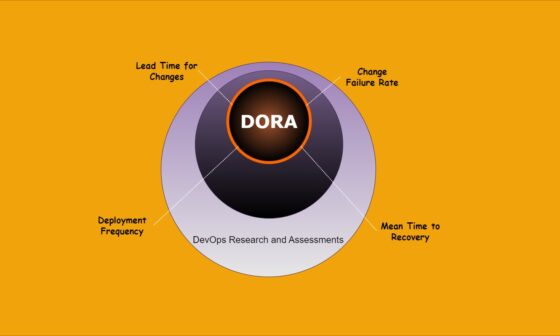Hi Techie,
Today, I will share with you DevOps Roadmap, DevOps Tools, and the must-have certificate that boost your career. But before that, I will discuss with, you what is DevOps.
What is DevOps?
DevOps, short for Development and Operations, is a set of practices and cultural philosophies that combines software development (Dev) and IT operations (Ops) to improve collaboration, efficiency, and quality throughout the software development lifecycle.
DevOps, short for Development and Operations, is a set of practices and cultural philosophies that combines software development (Dev) and IT operations (Ops) to improve collaboration, efficiency, and quality throughout the software development lifecycle.
The key principles of DevOps include:
- Collaboration
- Continuous Integration and Continuous Delivery (CI/CD)
- Infrastructure as Code (IaC)
- Automation
- Monitoring and Logging
By adopting DevOps practices, organizations can achieve several benefits, including faster and more frequent software releases, increased reliability, improved collaboration, enhanced scalability, and better overall customer satisfaction.
It’s worth noting that DevOps is not just about implementing specific tools or technologies but also about establishing a culture of collaboration, continuous improvement, and shared responsibility within an organization.
DevOps Roadmap
As DevOps is an ever-evolving field, it’s important to stay updated with the latest trends, technologies, and best practices. Here’s a roadmap for DevOps in 2023:
- Strengthen your foundation
- Gain a solid understanding of DevOps principles, practices, and methodologies.
- Learn about agile software development methodologies, such as Scrum or Kanban, as they align well with DevOps.
- Familiarize yourself with version control systems like Git, which are fundamental for collaboration and automation.
- Automation and CI/CD
- Master automation tools and frameworks such as Jenkins, GitLab CI/CD, or Azure DevOps for building continuous integration and continuous delivery (CI/CD) pipelines.
- Explore infrastructure-as-code (IaC) tools like Terraform or AWS CloudFormation to provision and manage infrastructure resources.
- Learn containerization technologies like Docker and container orchestration platforms such as Kubernetes to enable scalable and portable deployments.
- Cloud Platforms
- Deepen your knowledge of cloud platforms such as Amazon Web Services (AWS), Microsoft Azure, or Google Cloud Platform (GCP). Understand how to leverage their DevOps services and resources for infrastructure management, deployment, and monitoring.
- Configuration Management and Orchestration
- Explore configuration management tools like Ansible, Puppet, or Chef to automate the setup and configuration of systems and applications.
- Gain experience in managing and orchestrating complex environments with tools like Kubernetes, Helm, or Docker Swarm.
- Monitoring and Observability
- Understand the importance of monitoring, logging, and observability in DevOps.
- Learn monitoring tools such as Prometheus, Grafana, or ELK (Elasticsearch, Logstash, and Kibana) stack for real-time insights into system performance and troubleshooting.
- Security and Compliance
- Familiarize yourself with DevSecOps principles to integrate security practices into the DevOps lifecycle.
- Learn about security scanning tools like SonarQube, OWASP ZAP, or Clair to identify vulnerabilities and enforce secure coding practices.
- Collaboration and Communication
- Enhance your collaboration and communication skills to effectively work in cross-functional teams.
- Explore collaboration platforms such as Jira, Slack, or Microsoft Teams to facilitate communication, task management, and project tracking.
- Continuous Learning
- Stay updated with the latest DevOps trends, industry practices, and emerging technologies by attending conferences, webinars, and workshops.
- Engage with the DevOps community through online forums, blogs, and social media to exchange knowledge and ideas.
Remember that this roadmap is a general guideline, and you can tailor it based on your interests, organizational needs, and specific technology stack. The key is to continuously learn, experiment, and adapt to the evolving DevOps landscape to drive efficient and reliable software delivery.
DevOps Certifications
There are several popular and recognized certifications available for DevOps professionals. These certifications validate your knowledge and expertise in various DevOps practices, tools, and methodologies. Here are some of the top certificates for DevOps:
- AWS Certified DevOps Engineer: This certification offered by Amazon Web Services (AWS) validates your technical skills in deploying, operating, and managing applications on the AWS platform using DevOps principles and practices.
- Azure DevOps Engineer Expert: This certification, provided by Microsoft, demonstrates your expertise in implementing DevOps practices and technologies on the Microsoft Azure cloud platform.
- Google Cloud Professional DevOps Engineer: This certification, offered by Google Cloud, focuses on designing and implementing DevOps practices and solutions on the Google Cloud Platform.
- Certified Kubernetes Administrator (CKA): This certification, provided by the Cloud Native Computing Foundation (CNCF), verifies your skills in designing, deploying, and managing applications on Kubernetes clusters, a popular container orchestration platform.
- Certified Kubernetes Application Developer (CKAD): This certification focuses on designing, building, and deploying cloud-native applications for Kubernetes.
- Docker Certified Associate (DCA): This certification, offered by Docker, validates your knowledge of Docker containerization technology and your ability to build, deploy, and troubleshoot Docker containers.
- HashiCorp Certified Terraform Associate: This certification is, for those DevOps engineer who are focusing on Infrastructure as Code.
- Puppet Certified Professional: This certification, provided by Puppet, focuses on configuration management and infrastructure automation using Puppet, a widely used tool in the DevOps ecosystem.
- Red Hat Certified Engineer in DevOps: This certification, offered by Red Hat, demonstrates your skills in using Red Hat technologies and DevOps practices to automate application deployment, management, and scaling.
- Certified Jenkins Engineer: This certification, provided by the Jenkins project, validates your expertise in using Jenkins, an open-source automation server, for continuous integration and continuous delivery (CI/CD) pipelines.




1 comment
Nice article